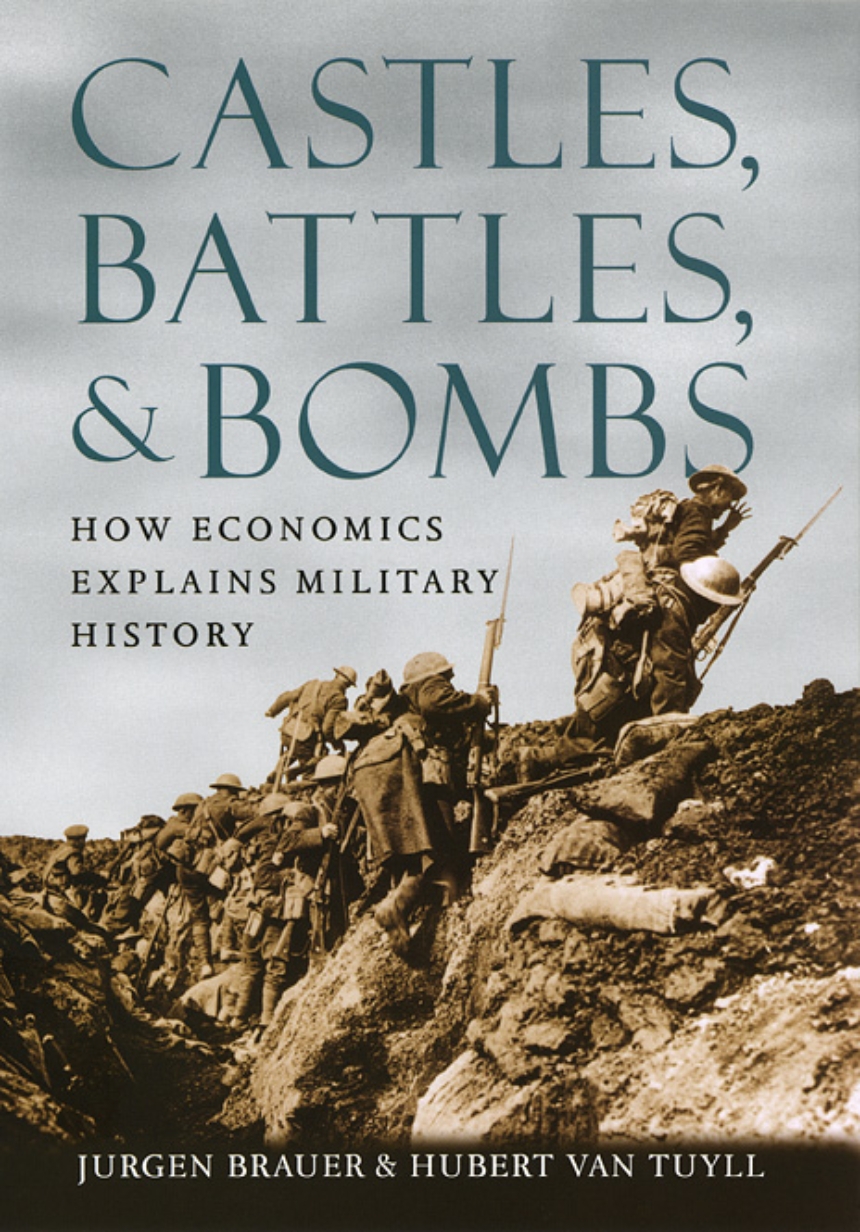Castles, Battles, and Bombs
How Economics Explains Military History
Castles, Battles, and Bombs
How Economics Explains Military History
Castles, Battles, and Bombs reconsiders key episodes of military history from the point of view of economics—with dramatically insightful results. For example, when looked at as a question of sheer cost, the building of castles in the High Middle Ages seems almost inevitable: though stunningly expensive, a strong castle was far cheaper to maintain than a standing army. The authors also reexamine the strategic bombing of Germany in World War II and provide new insights into France’s decision to develop nuclear weapons. Drawing on these examples and more, Brauer and Van Tuyll suggest lessons for today’s military, from counterterrorist strategy and military manpower planning to the use of private military companies in Afghanistan and Iraq.
"In bringing economics into assessments of military history, [the authors] also bring illumination. . . . [The authors] turn their interdisciplinary lens on the mercenary arrangements of Renaissance Italy; the wars of Marlborough, Frederick the Great, and Napoleon; Grant’s campaigns in the Civil War; and the strategic bombings of World War II. The results are invariably stimulating."—Martin Walker, Wilson Quarterly
"This study is serious, creative, important. As an economist I am happy to see economics so professionally applied to illuminate major decisions in the history of warfare."—Thomas C. Schelling, Winner of the 2005 Nobel Prize in Economics
424 pages | 23 line drawings, 21 tables | 6 x 9 | © 2008
Economics and Business: Economics--General Theory and Principles, Economics--History
History: General History, Military History
Reviews
Table of Contents
Preface
Chapter 1. Economics
Principle I: Opportunity Cost
Principle II: Expected Marginal Costs and Benefits
Principle III: Substitution
Principle IV: Diminishing Marginal Returns
Principle V: Asymmetric Information and Hidden Characteristics
Principle VI: Hidden Actions and Incentive Alignments
Conclusion: Economics—and Military History
Opportunity Cost and Warfare
The Ubiquity of Castles
The Cost of Castling
The Advantages of Castles
The Cost of Armies
Castle Building and the Other Principles of Economics
Conclusion
Chapter 3. The Renaissance, 1300–1600: The Case of the Condottieri and the Military
Labor Market
The Principal-Agent Problem
Demand, Supply, and Recruitment
Contracts and Pay
Control and Contract Evolution
The Development of Permanent Armies
Condottieri and the Other Principles of Economics
Conclusion
The 1600s: Gustavus Adolphus and Raimondo de Montecuccoli
The 1700s: Marlborough, de Saxe, and Frederick the Great
Napoleonic Warfare
The Age of Battle and the Other Principles of Economics
Conclusion
North, South, and the Search for Information
Major Eastern Campaigns through Gettysburg
Grant in Virginia
The American Civil War and the Other Principles of Economics
Conclusion
A Strategic Bombing Production Function
Bombing German War Production
Bombing the Supply Chain and the Civilian Economy
Bombing German Morale
Assessing the Effect of Strategic Bombing
Strategic Bombing and the Other Principles of Economics
Conclusion
Chapter 7. The Age of the Cold War, 1945–1991: The Case of Capital-Labor Substitution and France’s Force de Frappe
History of the Force de Frappe
The Force Post–De Gaulle
Justifying the Force
The Force’s Effect on France’s Conventional Arms
Substituting Nuclear for Conventional Forces
The Force de Frappe and the Other Principles of Economics
Conclusion
Chapter 8. Economics and Military History in the Twenty-first Century Economics of Terrorism
Economics of Military Manpower
Economics of Private Military Companies
Economics, Historiography, and Military History
Conclusion
Notes
References
Index
